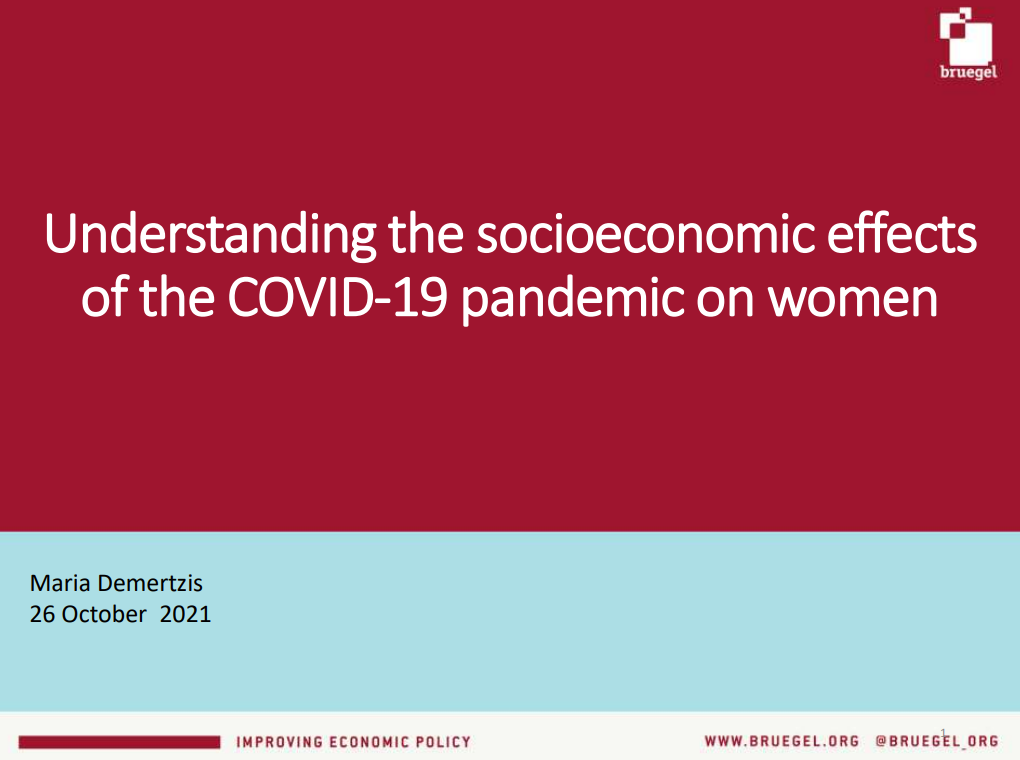Blog Post
A few good (wo)men – on the representation of women in economics
Last week, the American Economics Association Annual Meetings held a session on Gender Issues in Economics and later announced that a new code of professional conduct is in the pipeline. In this blogs review we revise the recent contributions on female representation and perception in economics.
Publishing difficulties, gender stereotypes and fewer majors – these were the overarching themes of the four papers presented in Philadelphia for the last American Economic Association (AEA) Annual Meetings, during a session dedicated to Gender Issues in Economics.
Alice H. Wu attracted a lot of attention when she published her paper on gender stereotypes in academia (“Gender Stereotypic in Academia: Evidence from Economics Job Market Rumors Forum”), which she presented at the AEA conference last week. Text mining 1.14 million posts from the on-line forum “Econ Job Market Rumours”, the author extracts the words with the strongest predictive power over each gender. Conversations about women in the forum are mostly linked to words of abusive and sexist nature, while men tend to be paired with work-related vocabulary. Additionally, she finds that if a woman is mentioned on a thread, there is a 2.1-2.3 percentage points higher probability the conversation will deviate from the academic focus and shift to gender characteristics, relative to a base scenario in which a thread is not associated to the gender of the poster. The findings were brought to light by Justin Wolfers in the New York Times and commented by Olivier Blanchard back in September, who pointed that “this harms our profession’s ability to reward and retain talent of all people, whatever gender, background, or belief” and called instead for a “civilized discussion” between economists.
With a view to address this issue, last Friday the American Economic Association announced that measures such as a “job wiki” on the AEA’s website along with the creation of a moderated discussion forum and the circulation of a draft code of conduct are in the pipeline. In 2012 the AEA had for the first time released a code of ethical standards to prevent and address conflicts of interest in the profession. At the time, these efforts were deemed dismal in effect, given AEA’s lack of proper enforcement mechanisms. The current proposal, which is expected to be finalized in April, has received some similar observations of being idealistic or coming late.
While Wu’s work faced some criticism for not being representative of the profession as a whole as it is based on an online forum, it may be indicative. A similar evidence of gender roles in economics was presented by Betsey Stevenson at AEA meetings. Analysing economics textbooks she finds both an underrepresentation of females in practical examples (70% vs. 30%) and in mentions of relevant policy makers (only 6% of all mentions are of women). Erin Hengel from the University of Liverpool analysed around 10,000 article abstracts from four top economics journals and concludes that women outperform men on readability, yet their papers take six month longer to be peer reviewed. Hengel argues that “higher editorial standards and/or biased referee assignment affect writing behaviour and lower productivity”. On the topic, Chari and Pinkham (2017) analyse the representation of women in economics based on the NBER Summer Institute, a highly visible annual conference which presents the latest advances in research across themes ranging from finance, macroeconomics and microeconomics. From 2013-2016, 20.6% of all authors were women. This share is higher than the average share in 2001-2004 (18.5%), but “the gap of women subfields has remained constant, with women currently making up 14.4% of authors in finance, 16.3% of authors in macro & international, and 25.9% of authors in microeconomics”. The authors consider the rate of paper acceptance, links with tenure-track and gender of the organizer as possible explanations for differences in representation. They find no evidence of systematic differences between acceptance rates across gender and across subfields.
Share of papers by gender composition

Source: Chari and Pinkham (2017)
Amanda Bayer and Cecilia Rouse (2016) write that there should be a revision in how economics is presented to undergraduate students and that support to early-career pipeline and mentoring programs should be given. A case in point was presented by Tatyana Avilova and Claudia Goldin at the AEA meetings. The authors take the Undergraduate Women in Economics Challenge as an example of an early stage intervention that may help closing the gender gap in Economics majors.
This discussion is far from recent. Beatrice Cherrier undertakes an historical perspective and takes us back to the twentieth century, when a higher status for women economists existed compared to the post-war period onward. In 1972, gender imbalance in economics was formulated as an economic problem for the first time. The changing status of applied work then enabled more women to become tenure-track economists in the 70s and 90s.
Fast forward to mid-December 2017, the Economist reported on the underrepresentation of females in academia and summarized the main facts: there are fewer women than men and they face a thicker glass ceiling. There are differences in how many women get tenure and in how long it takes to get it, which is not the case for other fields apart from Physics and Engineering. Levels of job satisfaction pale in comparison to men’s and the gap is growing larger. Women from minority racial and ethnic backgrounds face an added challenge.

More diversity in the field, as the Economist writes, would likely bring seriousness to sub-fields typically more populated by women, such as health, education, development or labour. On a macro scale, having a diverse environment is known to contribute to the intellectual development and avoid stagnation of ideas – Amanda Bayer and Cecilia Rouse argue the current asymmetries are constraining the range of issues addressed and limiting our collective ability to understand familiar issues from new and innovative perspectives. Governor of the Federal Reserve Lael Brainard pointed that “diversity in the economics profession will bring important insights into the analysis of our economy and financial system and help policymakers make better decisions in promoting a healthier economy”. As Diane Coyle puts it, this is not a women problem, it is an economics problem.
Republishing and referencing
Bruegel considers itself a public good and takes no institutional standpoint. Anyone is free to republish and/or quote this post without prior consent. Please provide a full reference, clearly stating Bruegel and the relevant author as the source, and include a prominent hyperlink to the original post.














